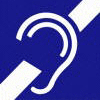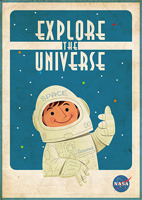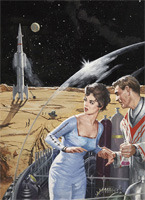Dan Thompson's Blog, page 19
July 23, 2012
Otter eat a possum’s dish odor?
Or maybe that’s “Auditory Processing Disorder”. Yeah, that’s probably what it was.
I do a post about my weird hearing problems approximately once a year, or whenever I forget how long it’s been. So, if this is old news, move along, nothing new to see here, but if you have no idea how an otter could even eat the odor of some possum’s dish, then you should keep reading.
 I have Auditory Processing Disorder (APD). It has very little to do with otters, possums, or the smell of their respective dishes. Rather, it’s a problem with the way my brain processes spoken language. My physical hearing is actually quite good, generally better than someone half my age, though that may simply be the unexpected benefit of skipping all those rock concerts in my youth.
I have Auditory Processing Disorder (APD). It has very little to do with otters, possums, or the smell of their respective dishes. Rather, it’s a problem with the way my brain processes spoken language. My physical hearing is actually quite good, generally better than someone half my age, though that may simply be the unexpected benefit of skipping all those rock concerts in my youth.
APD is actually a broad spectrum of neurological hearing disorders, but the more common forms affect the processing of language. In that respect, it is often compared to dyslexia, a learning disorder impairing the ability to read.
For me, I have a hard time turning that long blur of spoken syllables into discrete words with meaning. Sometimes this takes the form of hearing the wrong thing, i.e. “Otter eat a” instead of “auditory”, and sometimes it makes even less sense. I can hear the syllables just fine. In many cases, I can even run them back through my memory a few times to try to parse them. But sometimes, even having it repeated slowly and clearly isn’t enough. As a final resort, I have had to ask the speaker to repeat the blurry part and even have them spell it, letter by letter, including where the spaces would go.
This is especially bad when I’m in a noisy environment. Now, before you jump to the phrase, “I know exactly what you mean,” let me slow you down. It’s possible you’re suffering from a form of APD. It’s not known really how widespread it is, because it is usually only diagnosed in the most severe cases. Everyone else shrugs it off and moves on. For me, it got too bad to shrug off. I reached the point where I was starting to feel deaf at parties, and yet I could hear and appreciate classical/instrumental music with extreme fidelity.
 So, when I was diagnosed, they not only told me that I was not going deaf, but they were also able to quantify how bad my APD is. Specifically, in a noisy environment, my hearing drops to the bottom 1 percentile. That means that 99% of the population hears better than I do in that situation. In fact, they told me that by that measurement, I would be considered deaf under various ADA (Americans with Disabilities Act) guidelines.
So, when I was diagnosed, they not only told me that I was not going deaf, but they were also able to quantify how bad my APD is. Specifically, in a noisy environment, my hearing drops to the bottom 1 percentile. That means that 99% of the population hears better than I do in that situation. In fact, they told me that by that measurement, I would be considered deaf under various ADA (Americans with Disabilities Act) guidelines.
So, yeah, you may experience something similar, but believe me when I say that it’s 99% likely to be worse for me. And it’s not merely quantitative, i.e. I’ve got a NUMBER. At that point, it becomes a qualitative difference. You’re still managing, while I’ve been reduced to nodding and smiling, often with no idea of what people are saying.
I find this is even worse if the speaker is a man, because his lower voice blends in with the background noise more than a higher-pitched woman’s voice. Song lyrics are even worse, because they break the rhythms of normal speech. When I listen to a song for the first time, I will pick out perhaps ten words spread out over the entire song, so don’t expect me to have great appreciation for the insight they offer.
I’ve tried hearing aids, but they only make it worse by distorting the signal. There’s no pill to treat this, and the auditory training therapies have not proven effective. My particular variant of APD seems to happen mostly in children, and they grow out of it during adolescence. Mine started in adolescence and worsened over the years. It’s something of a mystery, but there’s not much research funding to turn me into a cure-hungry lab rat.
So yeah, that sucks. But I’m not curling up into an invitation-only pity party. There are some things I can do that help me get by.
The first thing I do is tell people about it in occasional messages like this. If they remember it, then maybe they’ll have a better idea of what’s happening when I stare at them, clueless to the question they just asked me. It also helps them to understand when I say I’d rather handle something by email than phone. And finally, when I keep asking them to repeat themselves, they treat me with patience instead of merely assuming I’m an idiot. (Well, at least no more of an idiot that I otherwise prove myself to be.)
I’ve also started to read lips. I don’t do it well enough to eavesdrop through a telescope, but it helps me pick up extra information about the words being spoken. For example, T and P sound similar to me, but they look quite different on someone’s face. So, if it looks like I’m not maintaining eye contact when we speak, that’s why. I’m not looking at your eyes. I’m looking at your mouth. Except for the ladies, of course, when my eyes may be drawn a little further south on rare occasions. Okay, not so rare.
I try to stay near walls. I find I can improve my comprehension if I can arrange to hear noise from only one direction. Put me in the middle of a noisy room, and I’m much worse off than if I’m next to a sound-absorbing wall.
I ask people to repeat themselves. This one gets tricky, because what I’m really after is a word-for-word repetition of what they just said. Not everyone understands that, and they assume that I merely did not comprehend the concepts involved and launch into a different explanation that I can’t hear either. Also, not everyone is really capable of repeating what they just said, word-for-word. It’s a skill, and not everyone has had need to develop it.
I ask people to face me when they speak. In a face-to-face conversation, you would think this is not much to ask, but you’d be surprised. “Look at that tiger over there,” is often spoken towards the tiger, not towards the listener. Sitting side-by-side in a car, the conversation is usually directed towards the windshield. There are a whole host of times when it’s easy to say something facing away, and most of the time, the other person hears you just fine. Alas, I don’t.
I also sometimes use an interpreter, preferably a woman whose speech patterns are familiar to me. I’ll usually place her between myself and the other speaker, a little off to my right. They know that if I turn to them in the middle of a conversation, I need to have the last few words repeated. They do this, slowly and distinctly, and can sometimes even identify the troublesome words and even clarify them with additional context, e.g. “auditory, as in sounds or music.” I am eternally grateful to these women for this service, and if you see one of them doing this in our conversation, please don’t think she’s interrupting. She is helping me have our conversation.
So, that’s what’s going on with my hearing. If we’re ever at a party or a conference and I ask you about the otter eating the possum’s dish odor, now you’ll know what I’m talking about.
July 20, 2012
Apollo Made Science Cool
Today is the 43rd anniversary of Apollo 11’s landing on the moon. There’s nothing magic about the number 43, but it’s the first time it’s rolled around since I started my blog. Apparently, that’s enough for me to get my soapbox out. So, this is me, getting up on that soapbox:
 The space race, from Mercury through Apollo, made science cool. It wasn’t all white-coats, beakers, and blackboards. It was fiery rockets going to fantastic places. It was making maps and looking over the horizon. Fill up that extra oxygen tank, Sparky, because we’re heading out in the morning!
The space race, from Mercury through Apollo, made science cool. It wasn’t all white-coats, beakers, and blackboards. It was fiery rockets going to fantastic places. It was making maps and looking over the horizon. Fill up that extra oxygen tank, Sparky, because we’re heading out in the morning!
Now science seems to be about smaller computers, cosmological models, new materials, and better batteries. Even something as cool as the discovery of the Higgs boson fails to connect with the common man. More to the point, it fails to connect with the common kid.
 I was born in 1967, and while I don’t remember it, I’m told I was on my daddy’s knee when Neil Armstrong took that one small step. My older brother remembers more of the space race, but I still grew up knowing that men were going up to the moon and doing stuff there.
I was born in 1967, and while I don’t remember it, I’m told I was on my daddy’s knee when Neil Armstrong took that one small step. My older brother remembers more of the space race, but I still grew up knowing that men were going up to the moon and doing stuff there.
I watched the final return from Spacelab on my grandmother’s TV, and I saw the launch of Viking II from the balcony of a Florida motel. And in a curator-curdling act, I stretched my little arm past the velvet rope and touched the Apollo 11 capsule in the Smithsonian. This was not some vague extrapolation of the Standard Model of particle physics. It was something I experienced in a very real and visceral way.
So, of course, I wanted to be an astronaut. At the age of seven, I did not really know what that entailed, but I knew that all this stuff about going into space required scientists, engineers, and mathematicians. So studies of English, social studies, and other soft stuff fell by the wayside as I pushed myself into whatever I could find that was at least a little scientific.
 Ultimately, I found my proficiency for math and computer programming, and while I never even tried for a job at NASA, I did end up writing software used to design many of the vehicles that have been launched into space in the last two decades. It was also used to design bridges, houses, planes, and computers, but it was not the notion of writing useful design software that sparked my interest as a kid. It was the bold adventure of heading off into space. Even now, I hold out some tiny hope that I might someday make it at least into orbit on some tourism venture.
Ultimately, I found my proficiency for math and computer programming, and while I never even tried for a job at NASA, I did end up writing software used to design many of the vehicles that have been launched into space in the last two decades. It was also used to design bridges, houses, planes, and computers, but it was not the notion of writing useful design software that sparked my interest as a kid. It was the bold adventure of heading off into space. Even now, I hold out some tiny hope that I might someday make it at least into orbit on some tourism venture.
People debate about the costs and benefits of the old space race. The cost blew through all estimates, and the quoted benefits are often limited to such mundane things as velcro and tang. A deeper look adds advances to such fields as computers, telecommunications, and material sciences, but even with those we face the argument that we could have achieved those advances with earth-bound research initiatives at a fraction of the cost.
But what people rarely talk about is that going to the moon made science cool to millions of kids like me. My story of spaceflight inspiration is hardly unique in my generation, and while only a fraction of us went on into the so-called STEM fields (Science, Technology, Engineering, Mathematics), a lot of us did. I haven’t been able to lay my hands on the actual numbers, but I’ve seen a few graphs to suggest that the percentage of US bachelor degrees in STEM fields peaked in the mid-80’s and has been in decline ever since. In other words, that surge in the percentage of STEM graduates was from that generation of kids who grew up watching Neil Armstrong walk on the moon.
These days, there is a lot of talk about increasing the number of STEM graduates here in the US. We’re told we need it to remain competitive in the global economy. Proposals abound on how to fix this, and they’re all about education reform, industry involvement, and tuition incentives.
 Yet I haven’t heard a single proposal about inspiration. No one is talking about lighting that fire to make kids want to explore science in the first place. That’s not a decision we make when graduating high school. It’s not even a decision we make when we’re going into high school. I think that decision is made somewhere deep inside when we’re seven or eight years old. It lights a fuse inside, and it keeps us going until we’re blowing up chemistry labs and crashing mom’s computer.
Yet I haven’t heard a single proposal about inspiration. No one is talking about lighting that fire to make kids want to explore science in the first place. That’s not a decision we make when graduating high school. It’s not even a decision we make when we’re going into high school. I think that decision is made somewhere deep inside when we’re seven or eight years old. It lights a fuse inside, and it keeps us going until we’re blowing up chemistry labs and crashing mom’s computer.
 Meanwhile, humans heading out past Earth’s orbit has become something we talk about with nostalgia. Kids don’t see it happening on TV. It’s in old movies with retro music and in conversations between adults that begin with “Remember when…” The only time politicians talk about renewing manned exploration of the heavens, it’s always an initiative to bear fruit in eight to twelve years, i.e. long after we’ve forgotten the promise and when it has become the next guy’s problem.
Meanwhile, humans heading out past Earth’s orbit has become something we talk about with nostalgia. Kids don’t see it happening on TV. It’s in old movies with retro music and in conversations between adults that begin with “Remember when…” The only time politicians talk about renewing manned exploration of the heavens, it’s always an initiative to bear fruit in eight to twelve years, i.e. long after we’ve forgotten the promise and when it has become the next guy’s problem.
So, here’s my idea. Yes, do what we can to make science education better, but do something to spark that fire in little kids. This is not a solution for boosting STEM graduates in ten years. It’s probably won’t even help much in fifteen or twenty years. But if we step up and send people to Mars in ten years, it would produce a generation of scientists that would put my own generation to shame.
 If you want more scientists, do something to make science cool again. Go to Mars and do more than leave a boot print.
If you want more scientists, do something to make science cool again. Go to Mars and do more than leave a boot print.
July 18, 2012
Best Writing Advice
Last week I wrote about the worst writing advice I ever got, so today I’m going to write about the best writing advice I ever got.
There’s a vast sea of writing blogs out there filled with advice. Most of it is decent. Some of it bad advice, or at the very least, it’s bad advice for you in particular. Similarly, some of that advice is simply inapplicable, e.g. dialog tags rarely matter in how-to books. But every now and then there’s a real gem, or at least, one that really speaks to me.
And the best writing advice I ever got was in quite the opposite direction from last week’s worst advice:
Finish the damn thing.
 It’s not “show don’t tell”, “avoid adverbs”, or even “eschew obscure verbiage”. It has nothing to do with the finer points of craft. It’s all about keeping your butt in the chair until you finish what you started.
It’s not “show don’t tell”, “avoid adverbs”, or even “eschew obscure verbiage”. It has nothing to do with the finer points of craft. It’s all about keeping your butt in the chair until you finish what you started.
Maybe that means keeping at it until you finish the draft. Maybe it’s all about doing the necessary edits to turn that draft into a readable manuscript. Maybe it’s about shepherding that manuscript through either the indie or traditional publishing tracks. It fits them all. If you’re working on something, keep at it until you’ve finished it.
Do not merely sit around for years, blathering on and on about that book you’re writing. Don’t let the printout gather dust on your desk. Don’t let it sit for months while you quibble over where to send it. It may have started easily enough with “Chapter 1”, but neither it nor you are done until it’s out the damn door.
Now, I will say that will all good advice, there are a few exceptions. If the book just isn’t working, then maybe it’s irreparably flawed. In that case, set it aside, come back to the idea (not necessarily the manuscript) in a few years and see if it’s worth another look.
 My first NaNoWriMo was like that. It reached 75,000 words and was just getting into the middle third of the story, so it was likely to end up at close to 200,000. (That’s 670 pages in paperback terms.) And besides being too long, it was not particularly commercial in that it was a deeply philosophical science fiction tale exploring the nature of sentience, a post-scarcity world of aimless dilettantes, and lots and lots of lesbian robot sex. As weird as that sounds, I might go back to it someday and see what there is to salvage. Who knows, I might just turn out to be the great 21st Century thesis on lesbian robots.
My first NaNoWriMo was like that. It reached 75,000 words and was just getting into the middle third of the story, so it was likely to end up at close to 200,000. (That’s 670 pages in paperback terms.) And besides being too long, it was not particularly commercial in that it was a deeply philosophical science fiction tale exploring the nature of sentience, a post-scarcity world of aimless dilettantes, and lots and lots of lesbian robot sex. As weird as that sounds, I might go back to it someday and see what there is to salvage. Who knows, I might just turn out to be the great 21st Century thesis on lesbian robots.
However, if story after story keep stalling out, it’s probably not the story itself, so just grab the one you’re working on and finish it. Maybe it will be trash, but with a finished story, you can at least take a look at the whole and see why it isn’t working and whether or not you can fix it.
My second attempt at a novel did not have those problems, and it is now out in reader’s hands. The third, fourth, and (so far) fifth novels worked out pretty well too. They’re not out yet, but I am working on finishing them. The third is with beta readers, the fourth is in a cooling period awaiting my edits, and the fifth is is taking form in its first draft. After years of piddling around with ideas and partial drafts, it feels good to pound them into the ground and say they are done. Or at least, it feels good so far.
I’ll throw in a couple of quick mentions of the second and third best writing advice I ever got. The second one being to write, write again, and keep writing. Writers write, the saying goes. They don’t merely talk about how they’re going to write.
The third best writing advice I ever got came from a tiny little book called Writing to the Point, by Algis Budrys. The book is now out of print, and used copies are rare and list for about $1000 on EBay. He died a few years ago, so I don’t know what, if anything, his estate is doing about republishing it in paper or ebook form. But he gave an excellent and simple formula for writing fiction that established a rhythm for a story, where the protagonist tries, fails, and keeps trying. I’ll dig it up sometime and do my best to sum it up, but it was fabulous.
So there it is. Anyone else have some good writing advice?
July 16, 2012
Urban Fantasy: Where Be Dragons?
The urban fantasy genre has no shortage of fantasy creatures. They have wizards, fairies, trolls, demons, giants, werewolves, and perhaps a dozen flavors of the undead. They have virtually all the magical beings from high fantasy, but… where are the dragons?

For that matter, where are the unicorns, gryphons, mermaids, basilisks, centaurs, and ents? I can’t claim to be an expert on urban fantasy, but I’ve read a few dozen, and so far, the magical creatures seem to be limited to those who can put on a pair of shoes and walk among us.
In fairness, that’s almost required by the genre since the fantastic part of the world is usually hidden away, and since a vampire can walk into a nightclub more secretly than a forty-ton dragon, things tip towards the vampires and their two-footed friends.
There are certainly exceptions, but the ones I can think of almost don’t qualify as “urban fantasy”. The Harry Potter novels had dozens of truly fantastic creatures far beyond humans with prosthetic foreheads. (Oops, sorry, wrong genre!) But I’m not sure Harry Potter qualifies as urban fantasy. It’s not that it violates rule #12 of the urban fantasy code. It just doesn’t have the same vibe to me.
But if we are to stick with the rule that the fantastical elements of urban fantasy must remain hidden from the mundane world, couldn’t we still sneak in a few dragons? It would be hard to keep one in Chicago, but I can think of a number of lowly populated areas they might hide.
The national park system would make excellent hunting grounds, and if they were ever spotted by some random hiker? Well, ma’am, we think it was a bear attack, though we never did find the body. If they restrict their flight to nighttime (or at least during camping season), who knows how long they could remain a secret, especially if they were able to employ magical powers to help hide them. (This might go far in explaining some of the wildfires in recent years.) Go worldwide, and there are plenty of places that dragons might find more hospitable than humans.
 Given how little we see of our vast oceans, mermaids would have an easy time hiding out. They might even enjoy teasing our submarines. Centaurs and ents would find suitable homes in our forests, and the ents might even talk a few developers out of their plans. Basilisks would hunt as easily as dragons, and unicorns are well known for their invisibility to all but virgins. If I’m to believe the statistics, they should be safe as long as they stay away from grade schools.
Given how little we see of our vast oceans, mermaids would have an easy time hiding out. They might even enjoy teasing our submarines. Centaurs and ents would find suitable homes in our forests, and the ents might even talk a few developers out of their plans. Basilisks would hunt as easily as dragons, and unicorns are well known for their invisibility to all but virgins. If I’m to believe the statistics, they should be safe as long as they stay away from grade schools.
Then again, these remote locations are hardly urban, now are they? Could you keep a small dragon in the city? What about mermaids living in the town lake or ents in the city park? And are unicorns really that invisible to the impure? I don’t know, but it would be cool to see an author try it.
I’m not saying that I require my urban fantasy to branch out to ents or dive into the realm of mermaids. They’re still good stories as they are. However, I am saying it would be nice to explore an imaginative world that is populated by more than vampires, zombies, and werewolves.
July 13, 2012
Review: Side Jobs, by Jim Butcher
This is a collection of short stories from the Dresden Files:

 I’m going to start off with two opposing disclaimers. First, I don’t really read that much short fiction anymore. I used to, but somewhere along the way, it lost its appeal. Second, the Harry Dresden series is one of the best things I’ve read in my life, so I’m predisposed to like this… except, of course, for the short form.
I’m going to start off with two opposing disclaimers. First, I don’t really read that much short fiction anymore. I used to, but somewhere along the way, it lost its appeal. Second, the Harry Dresden series is one of the best things I’ve read in my life, so I’m predisposed to like this… except, of course, for the short form.
These stories occur between the various novels, and there’s a little forward for each one saying when it occurs and how he came to write it. Often these stories were requested for anthologies, so the story behind the anthology was a little interesting as well. Anyway, the stories started from perhaps halfway through the series so far (i.e. maybe as early as book 5 or 6), all the way to one story that occurred between Changes and Ghost Story.
By and large, these were good stories, and I enjoyed them. Perhaps my biggest complaint was the short form, but I already said I’m biased against that. That stripped the tales of a lot of the wonderful character and world building that they’re known for, and then just as the story really started ramping up, it was over. But what else are you going to do in 8,000 words?
Two stories in particular stood out from the rest, largely because they were not written from Harry Dresden’s point of view. Now, I love Dresden’s first person narrative voice, but the tales done from Thomas’s and Murphy’s points of view were fabulous.
Thomas’s tale dealt with a subject that, by its very nature, Harry was never going to be able to narrate. It was about an effort to intentionally obscure and hide things, which tends to be the very opposite of Harry’s modus operandi. Thomas, however, is well-versed in keeping secrets, and it was great to get his view of the magical world.
Murphy’s tale takes place between Changes and Ghost Story. It’s a time when Harry Dresden is, shall we say, indisposed. Given what the magical side of Chicago looks like at the start of Ghost Story, this story provides a powerful glimpse at the desperate resolve of his friends picking up the fight in his absence.
So, if you’re a fan of Harry Dresden, definitely check this out. If you haven’t read them yet, though, go pick up Storm Front and start reading.
July 11, 2012
Worst Writing Advice
I see lots of writing advice. Sometimes it’s some writer’s best practice. Other times it’s a time-honored truth. And sometimes it sucks with the power of an army of shop vacs. I’ve seen writers asked for the best and worst writing advice they’ve heard, so I thought I’d do that in a pair of entries this week and next. In order to end on a more positive note, I’m starting with the worst.
The worst writing advice I ever got went something like this…
So, you want to write? Don’t. That’s right: don’t write. Just walk away from the keyboard, leave the room, and never come back.
Another version I’ve heard says that if you feel the urge to write, you should go lie down until it passes.
I’ve run into several other versions, but they all say the same thing. If you think you want to write, don’t do it. Just give up. Don’t even try to write. Quit now. This is not for you.
If you dig deeper into this kind of advice, you’ll find that what they’re really trying to say is that it’s hard work, and for the vast majority of people who try it, it pays only in tears and crushed dreams. The last time I checked, the mortgage company does not accept payment in dreams, crushed or otherwise. So, you should give it up. Maybe that’s harsh, but for at least 99% of you, it’s excellent advice.
Excuse me, but I say BULLSHIT.
Yes, writing is hard work. Yes, it usually pays poorly. And yes, most of you won’t be particularly good at it.
But telling you to not even try is like telling a kid to put down the ball because he’s not likely to make it onto a professional baseball team. Or perhaps you’d rather tell a 5-year-old to put away the finger paints because she’s unlikely to be the next Picasso? Or to tell your son to stop looking at the stars because there are so very few astronaut slots?
To hear those words coming from a professional writer smacks of elite hypocrisy. “Here, take this advice that I did not heed and am glad I never did, but for you it’s spot-on. Yes, I used to suck just as bad as you, but I’m brilliant now, and you’re not. So go away, kid. You bother me.”
They justify this by saying that for every potentially great writer they discourage, they save ninety-nine others the heartbreak of crushed dreams. I say to hell with that, because I think those other ninety-nine will have a lot of fun trying, just like all those young athletes who never turn pro.
So feel free to ignore that advice. If you want to write, I say you should go for it.
For what it’s worth, the distant second in the race for worst writing advice ever was that if you’re going to be serious about it, you need to go back to school, get a degree in English, and learn both Latin and German, preferably with Latin being your second major. The idea was that you could then understand the English language well enough to know when to use the Latin-derived word instead of the Germanic-derived word.
So, here I am writing science fiction and fantasy… is “phaser” from the Latin? What about “zombie”?
How about you? What’s the worst writing advice you were ever given? (Or skip writing and go with any bad advice.)
July 9, 2012
Page 100
Sorry, no essay today, but I crossed through page 100 on my new draft. I draft on 8.5×11″ pages — or rather, their electronic equivalent — so that’s about 56,000 words. In a trade paperback, that would be closing in on page 200.
I’m more or less on track to finish up by the end of July. I’m setting a pace for 90,000 words, though my drafts tend to come in closer to 80,000 with another 5-10K creeping in during the edit phase. This is for two reasons: first, my drafts are often light on needed description, and second, my initial drafts sometimes include notes like “hey, this gun needs to show up back in act 1.” So, while there is some tightening of the prose during the edits, I also add a fair amount, sometimes in snippets and sometimes entire scenes.
It’s also been interesting in that I’m writing a sequel to a book that won’t come out until this fall, and I still have time to go back and change things in that first book. So, as I’m winding this one down and firming up the ideas for the next three (it’s a 5-book series… I think), I’m seeing a couple of items that I need to go back and drop into the first book. Things that, y’know… might be IMPORTANT later.
So, back to the word mines. I’ve got another six or seven pages before the next bad thing happens to our heroes.
July 6, 2012
Third Grade Conflict
My daughter asked me to write her a story. I think much of this is driven by the fact that she knows I wrote a book, and someone (not me) let the cat out of the bag that it was dedicated for her. My reason for wanting to hold this back is that Beneath the Sky is perhaps a bit mature for even a precocious eight-year old. So, she wants another story, one she can read.
In fact, she went so far as to tell me what it should be about. Specifically, it should be about a girl who goes to school. She’s heading off to third grade in the fall, so I expect she’s looking forward to some story in that regard. So, I have my setting and my protagonist, but I don’t have a plot.
Sure, I’ve got plots. I’ve got loads of plots. Plot ideas come oozing out of my head like too much Play-Doh under pressure, but these are plots about murder, oppression, revenge, and deceit. Sure, there’s other stuff in there like plasma cannons, demons, and occasional bits of hot lusty sex. Hmmm, not sure that’s making it any better.
Ultimately, none of the stories I’ve thought about in the last ten to twenty years have been terribly appropriate for a little girl heading into the third grade. Of course, I know her innocence is temporary, and somewhere along age fourteen or fifteen I’m going to have to answer questions about getting tassels to spin in opposite directions, but for now, I want something that’s a bit more tame.
And I’m drawing a blank.
I barely even remember the third grade, let along the relevant plot points. About all I do remember was learning the times tables and playing Thomas Edison in the school pageant. I don’t even remember pining for the lovely Miss Anne-Marie since she was in a different class that year.
So, what conflicts does a kid face in the third grade? Hitting her up with performance anxiety isn’t exactly thrilling me, but so far the alternatives will likely induce demon-filled nightmares for the next dozen years.
Ideas? Anyone?
July 4, 2012
Lucky 7 Meme
I was tagged in a Lucky 7 meme by Jo Eberhardt, which challenged me and six others to post something from our current work in progress.
Specifically, the challenge states:
Go to the 7th or 77th page of your WIP.
Go to the 7th line of the page.
Copy the next 7 paragraphs (exactly as typed).
Tag 7 other authors and let them know they’re it.
I actually had to think about it a bit. Part of this is my reluctance to discuss work in progress, but it was also that I technically have three works in progress:
Ships of My Fathers, a space opera in the same universe as Beneath the Sky, is in the hands of beta readers.
Hell Bent, an urban fantasy “about a reporter who goes to hell”, is sitting in first draft form waiting for me to go the first pass revisions.
And finally, Debts of My Fathers, the sequel to Ships of My Fathers, is being written right now during June and July.
I thought about picking and choosing, but I figured that Debts of My Fathers was the most in progress of them all. I got the challenge when I was on page 62, so I put it off a few days until I passed page 77. (And just to show how much I was over-thinking this, I questioned whether to pick page 77 of the word document, or skip forward to page 78, since the cover sheet shouldn’t count.)
Anyway, here’s what I’ve got:
Foshey glanced around. “Is he here? Surely, he didn’t miss his son’s big night.”
“I’m afraid so,” Michael replied.
“Whatever was his excuse?”
“He died last year.”
“Oh, dear me… I just blundered right over that. I’m so sorry. I hope it wasn’t anything left over from the Caspians.”
“No, a simple accident, could have happened to anyone.”
Foshey took a step closer and sat on the seat next to Michael. “Still, I was in his debt, and now I suppose I’m in yours. What are you up to these days? Is there anything I can do to help?”
It doesn’t look like much, but those of you who have read Beneath the Sky will have already met Xavier Foshey (briefly in chapter 8) and might appreciate that this particular conversation could be… um… IMPORTANT. (You should thank me for not using the blink tag for emphasis.)
As for picking seven authors, I’m a little stuck. I can’t say I really know seven other authors well enough to tag this way. Or at the very least, I’m not sure I’m known by seven others well enough for them to be tagged by me. But here goes:
1. Allyson Whipple
2. Christine Rose
3. Steven Brust
4. Muffy Morrigan
5. Rhonda Eudaly
…
Ok, here’s where I start shooting for the moon…
6. Jim Butcher, because I want to see what Harry Dresden is doing now that he’s *SPOILER*
7. Jack McDevitt, because I want to see what Alex and Chase have gotten themselves into now, especially since we know that *SPOILER* may be returning to them soon.
I guess that’s it.
July 3, 2012
Cool Article: Gaming to Stories
I just wanted to pass on a quick link to a cool article by Rachel Aaron. She writes about a tool used in gaming, encounter difficulties, and applies it to writing.
Game Masters can group the challenges he gives his players in various rankings, from trivial all the way up to overpowering, and he’ll mix them up to provide the right balance to the game. Authors should do the same to their characters, and she says a few things about when to offer the characters some easy challenges and when to whomp them over the head with an apocalypse.



